Ep. 29: Gina McCarthy – Director, C-Change at Harvard Chan School of Public Health ||
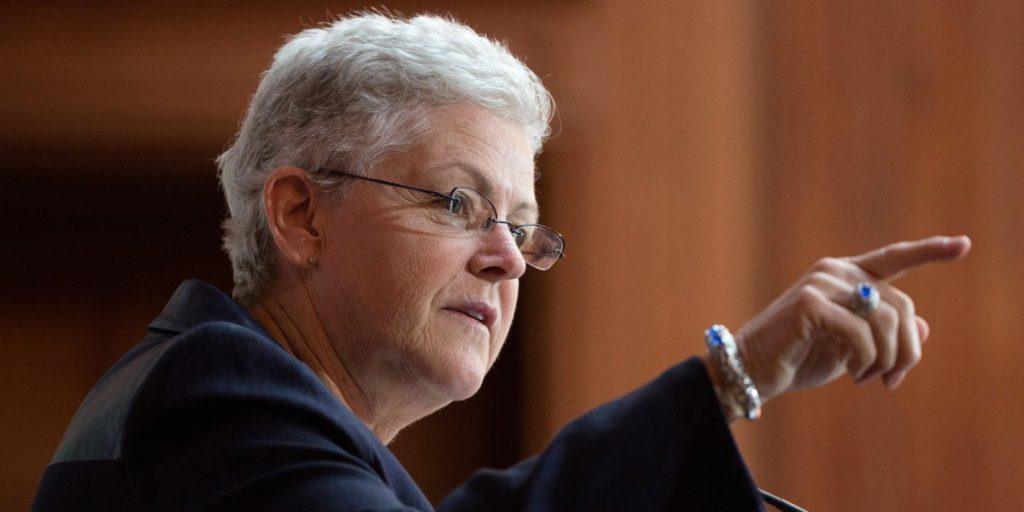
On Sourcing Matters episode 29 we welcome Gina McCarthy, Director of C-Change at Harvard’s Chan School of Public Health. McCarthy has a background fighting for and evolving environmental policy. A change-agent of positivity, McCarthy has been a leading advocate for common sense strategies to protect the public and the environment for more than 30 years. She served under President Barack Obama as the 13th Administrator of the EPA from 2013–2017. Her tenure as EPA Administrator heralded a paradigm shift in national environmental policy, expressly linking it with global public health. Prior, during her career in Massachusetts, McCarthy advised five governors on environmental affairs, worked at the state and local levels on critical environmental and ecological issues, and helped coordinate policies on economic growth, alternative energy, and modern transportation.
.
In our 45 minute conversation we discuss both the need and opportunity to embrace sustainable best practice across the board. We chat about the current landscape in DC. We discuss Scott Pruitt and his $43K soundproof phone booth, Trump’s perspective on the environment, climate change deniers, future food, agriculture and much more.
McCathy’s take on the political divide, “We need to stop Washington from simply making climate change part of a partisan platform. Frankly, It has nothing to do with being a Republican or Democrat. Absolutely nothing! If you’re a human being – you need to care about this, and you need to act.”
To do this we need to motivate, inspire and let people come to their own conclusions that this all matters. “It’s a strategy that we need to stop scaring people, and start creating the pied piper effect. Play great music, and let people follow you.”
.
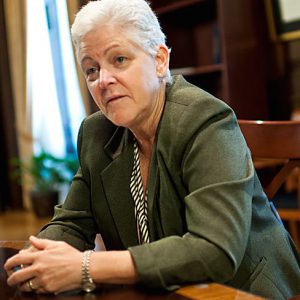 Gina explains that the EPA isn’t a birds & bunnies agency. But, instead one focused on public health and national security. “People need to realize, climate isn’t about polar bears, it’s about their kids.” McCarthy gets to the brass tacks of the movement, “The most important thing we can do is to realize the future is in our hands. We need to grab opportunities where they come, and be positive about it.” She continues “We need to put science to work, and explain it in terms that everyone can understand.” McCarthy recently completed a few fellowships at Harvard. “I found the students to be incredibly exciting and engaging. They had a sense of social justice and equity that was just palpable. They just didn’t want to tolerate moving forward in a world that doesn’t recognize that science is real, that climate change is happening, that manmade emissions are causing it; and that we have to do something – not least of which is to more women into office!”
Gina explains that the EPA isn’t a birds & bunnies agency. But, instead one focused on public health and national security. “People need to realize, climate isn’t about polar bears, it’s about their kids.” McCarthy gets to the brass tacks of the movement, “The most important thing we can do is to realize the future is in our hands. We need to grab opportunities where they come, and be positive about it.” She continues “We need to put science to work, and explain it in terms that everyone can understand.” McCarthy recently completed a few fellowships at Harvard. “I found the students to be incredibly exciting and engaging. They had a sense of social justice and equity that was just palpable. They just didn’t want to tolerate moving forward in a world that doesn’t recognize that science is real, that climate change is happening, that manmade emissions are causing it; and that we have to do something – not least of which is to more women into office!”
.
After her work in DC and finalizing the fellowship programs, Harvard’s Chan school of Public Health became the ideal venue to continue her transformative work in materializing the impacts of climate change and environmental pollution on public & personal health. The goal of the new C-Change center is to make sure science is driving actions continuously. She explains “The Dean wanted the science to be done not just well, but to be communicated well. To actually get into the hands of decision makers, and we can actually make a difference based on real facts on the ground.”
“The greatest opportunity we have to improve health in this century is embrace climate change as a public health issue. Climate change is opening our eyes to what we need to do to live sustainably. And, a low carbon future is something we should be running towards; investing in; talking about; getting exciting about! I want people to know that climate change is perhaps the most direct threat they have today for their kid’s tomorrow. Taking action against climate change now is the greatest opportunity we have to chart a future that is sustainable.”
—
Gina McCarthy, Sourcing Matters Aug’18.
What we’re learning is: we do have great leaders, from all over, with diverse backgrounds who are ready for their time up at bat. This has melded with a confluence of a citizen awakening, and what seems to be a zeitgeist of generation next where responsible action can be the permanency to set a proper course moving forward. Recent defeats from this administration is a gut check; maybe a call to action for us to gain some small wins, together, for greater good and stability.
.
So, whether instigating change from our dinner plate, in a lab or research center, via technology & innovation, or from some of the most prestigious institutions in the land – we’ve got this talent. We need now to mobilize around small victories and milestones from the grass-roots. It’s our time we get out and make a difference!
.
photo source: Politico
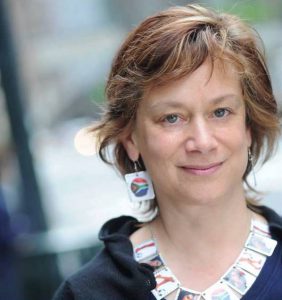 First, in “Cows Save the Planet” – she takes a look at restoring large scale ecological systems through holistic planned grazing of herbivores. Basically, by keeping animals on the parterre lands, in natural environments we evolve our management practice to actually harmonize with natural order. This kick starts natural environments that can have vast net positive impact on the climate. Soil everywhere becomes a thriving carbon bank – by first stabilizing natural exchanges, then sucking-up excess carbon we spew into the air. Judith shares her thoughts on the current state of affairs with this approach & mindset, and some new discoveries since publishing the book.
First, in “Cows Save the Planet” – she takes a look at restoring large scale ecological systems through holistic planned grazing of herbivores. Basically, by keeping animals on the parterre lands, in natural environments we evolve our management practice to actually harmonize with natural order. This kick starts natural environments that can have vast net positive impact on the climate. Soil everywhere becomes a thriving carbon bank – by first stabilizing natural exchanges, then sucking-up excess carbon we spew into the air. Judith shares her thoughts on the current state of affairs with this approach & mindset, and some new discoveries since publishing the book.

 Previous to beginning his work at the CLF in 2011, Martin was the Executive Director of the PEW Commission on Industrial Farm Animal Production. Martin managed a comprehensive two-year, $3.6 million study that led to the publication of eight technical reports and a final 122-page report on the public health, environmental, animal welfare and rural community impacts of our conventional methods for producing meat, dairy and eggs. The report – Putting Meat on the Table: Industrial Farm Animal Production in America defined a seminal moment of awareness in US production, food systems and supporting a shared one-health. It’s been a significant part of our realization that the approach we’re using to raise animals has broad reaching human and public health impact that needs immediate attention.
Previous to beginning his work at the CLF in 2011, Martin was the Executive Director of the PEW Commission on Industrial Farm Animal Production. Martin managed a comprehensive two-year, $3.6 million study that led to the publication of eight technical reports and a final 122-page report on the public health, environmental, animal welfare and rural community impacts of our conventional methods for producing meat, dairy and eggs. The report – Putting Meat on the Table: Industrial Farm Animal Production in America defined a seminal moment of awareness in US production, food systems and supporting a shared one-health. It’s been a significant part of our realization that the approach we’re using to raise animals has broad reaching human and public health impact that needs immediate attention. Throughout the 45 minute conversation Shauna shares some interesting anecdotes of situations that have arisen in her time at as VP at Annie’s, and most recently while managing the organic allotment of General Mills’ vast arsenal of products.
Throughout the 45 minute conversation Shauna shares some interesting anecdotes of situations that have arisen in her time at as VP at Annie’s, and most recently while managing the organic allotment of General Mills’ vast arsenal of products.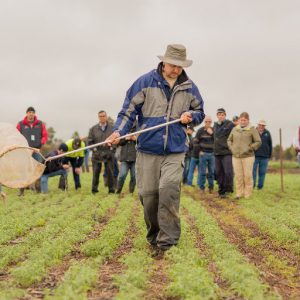 A whistleblower case was filled against the USDA – stating the actions of USDA leadership suppressed his voice; compromised his science. Penalized for these actions, Dr. Jonathan Lundgren was soon forced out of the USDA as retaliation against those scientific findings, and mostly for not backing down. For episode 35 you get to hear how this brave and honorable scientist is setting a path forward for a more just, prosperous and well informed tomorrow.
A whistleblower case was filled against the USDA – stating the actions of USDA leadership suppressed his voice; compromised his science. Penalized for these actions, Dr. Jonathan Lundgren was soon forced out of the USDA as retaliation against those scientific findings, and mostly for not backing down. For episode 35 you get to hear how this brave and honorable scientist is setting a path forward for a more just, prosperous and well informed tomorrow.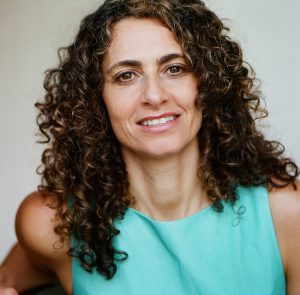
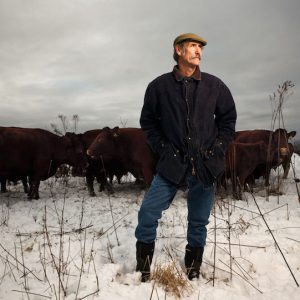
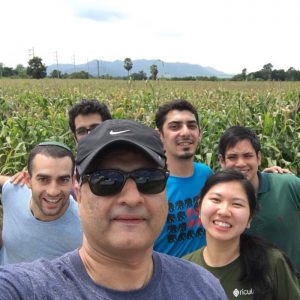 Their Bill and Melinda Gates foundation backed company has now architected and framed a system which alleviates many of the issues within current supply chains for small farmers. Supply chains for the billion small stakeholder farmers throughout the globe are often controlled by their investors, who maybe be better described as loan-sharks and present limited interest in feeding a shrinking planet nor looking out for the best interests of their debtors. From Clearinghouse -to- Financier -to- Marketplace preserving production qualities – it’s RIcult that has stepped in to re-introduce potential for small stakeholder farmers to make a fair living through growing our food.
Their Bill and Melinda Gates foundation backed company has now architected and framed a system which alleviates many of the issues within current supply chains for small farmers. Supply chains for the billion small stakeholder farmers throughout the globe are often controlled by their investors, who maybe be better described as loan-sharks and present limited interest in feeding a shrinking planet nor looking out for the best interests of their debtors. From Clearinghouse -to- Financier -to- Marketplace preserving production qualities – it’s RIcult that has stepped in to re-introduce potential for small stakeholder farmers to make a fair living through growing our food.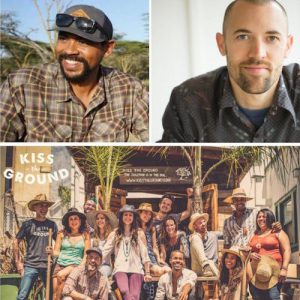 On episode 31 of Sourcing Matters we welcome Ryland Engelhart and Jesse Smith of Kiss The Ground. Well known for the critically acclaimed book and forthcoming movie, both sharing the same namesake as their organization, non-profit Kiss The Ground is telling a new story about our ability to regenerate land, reverse climate change and reconnect to nature by building back healthy soil. Through programs focused on storytelling, education, business, community gardens and the farmland – Kiss The Ground empowers people to restore soil and help accelerate the adoption of regenerative agriculture. Seamlessly complementing each other throughout the 45 minute conversation, both guests brought unique insight to our discussion which connected soil, human, and planetary health.
On episode 31 of Sourcing Matters we welcome Ryland Engelhart and Jesse Smith of Kiss The Ground. Well known for the critically acclaimed book and forthcoming movie, both sharing the same namesake as their organization, non-profit Kiss The Ground is telling a new story about our ability to regenerate land, reverse climate change and reconnect to nature by building back healthy soil. Through programs focused on storytelling, education, business, community gardens and the farmland – Kiss The Ground empowers people to restore soil and help accelerate the adoption of regenerative agriculture. Seamlessly complementing each other throughout the 45 minute conversation, both guests brought unique insight to our discussion which connected soil, human, and planetary health. It’s Agriculture Capitals mission to grow access to healthy, sustainable food. “We’ve assembled experienced professionals from finance, farming, processing, marketing, and sustainability to bring innovative thinking to managing successful food enterprises.” described the firm’s website. Turner has over 20 years of experience in corporate sustainability, environmental management, and consumer engagement. Most recently, he was on the executive team at organic yogurt pioneer Stonyfield Farm as the company’s VP Sustainability Innovation. Prior to that, he was founding executive director of Climate Counts, an international NGO focused on measuring and scoring the world’s largest consumer companies on their concrete, enterprise-level responses to climate change. Wood has consulted to brands, elected officials, and public agencies on mobilizing the public around ideas that improve the environment and build community.
It’s Agriculture Capitals mission to grow access to healthy, sustainable food. “We’ve assembled experienced professionals from finance, farming, processing, marketing, and sustainability to bring innovative thinking to managing successful food enterprises.” described the firm’s website. Turner has over 20 years of experience in corporate sustainability, environmental management, and consumer engagement. Most recently, he was on the executive team at organic yogurt pioneer Stonyfield Farm as the company’s VP Sustainability Innovation. Prior to that, he was founding executive director of Climate Counts, an international NGO focused on measuring and scoring the world’s largest consumer companies on their concrete, enterprise-level responses to climate change. Wood has consulted to brands, elected officials, and public agencies on mobilizing the public around ideas that improve the environment and build community.
 Gina explains that the EPA isn’t a birds & bunnies agency. But, instead one focused on public health and national security. “People need to realize, climate isn’t about polar bears, it’s about their kids.” McCarthy gets to the brass tacks of the movement, “The most important thing we can do is to realize the future is in our hands. We need to grab opportunities where they come, and be positive about it.” She continues “We need to put science to work, and explain it in terms that everyone can understand.” McCarthy recently completed a few fellowships at Harvard. “I found the students to be incredibly exciting and engaging. They had a sense of social justice and equity that was just palpable. They just didn’t want to tolerate moving forward in a world that doesn’t recognize that science is real, that climate change is happening, that manmade emissions are causing it; and that we have to do something – not least of which is to more women into office!”
Gina explains that the EPA isn’t a birds & bunnies agency. But, instead one focused on public health and national security. “People need to realize, climate isn’t about polar bears, it’s about their kids.” McCarthy gets to the brass tacks of the movement, “The most important thing we can do is to realize the future is in our hands. We need to grab opportunities where they come, and be positive about it.” She continues “We need to put science to work, and explain it in terms that everyone can understand.” McCarthy recently completed a few fellowships at Harvard. “I found the students to be incredibly exciting and engaging. They had a sense of social justice and equity that was just palpable. They just didn’t want to tolerate moving forward in a world that doesn’t recognize that science is real, that climate change is happening, that manmade emissions are causing it; and that we have to do something – not least of which is to more women into office!”